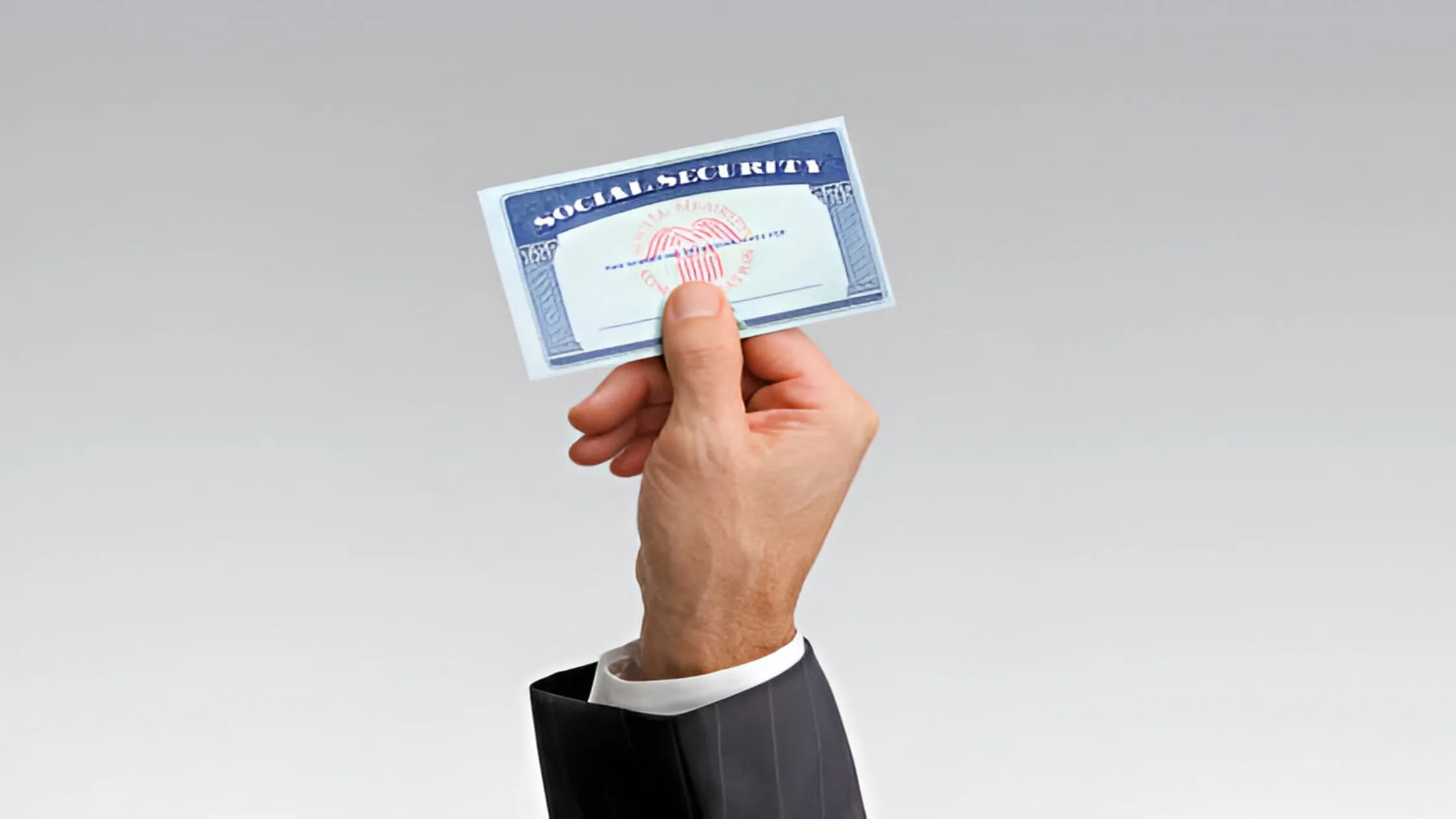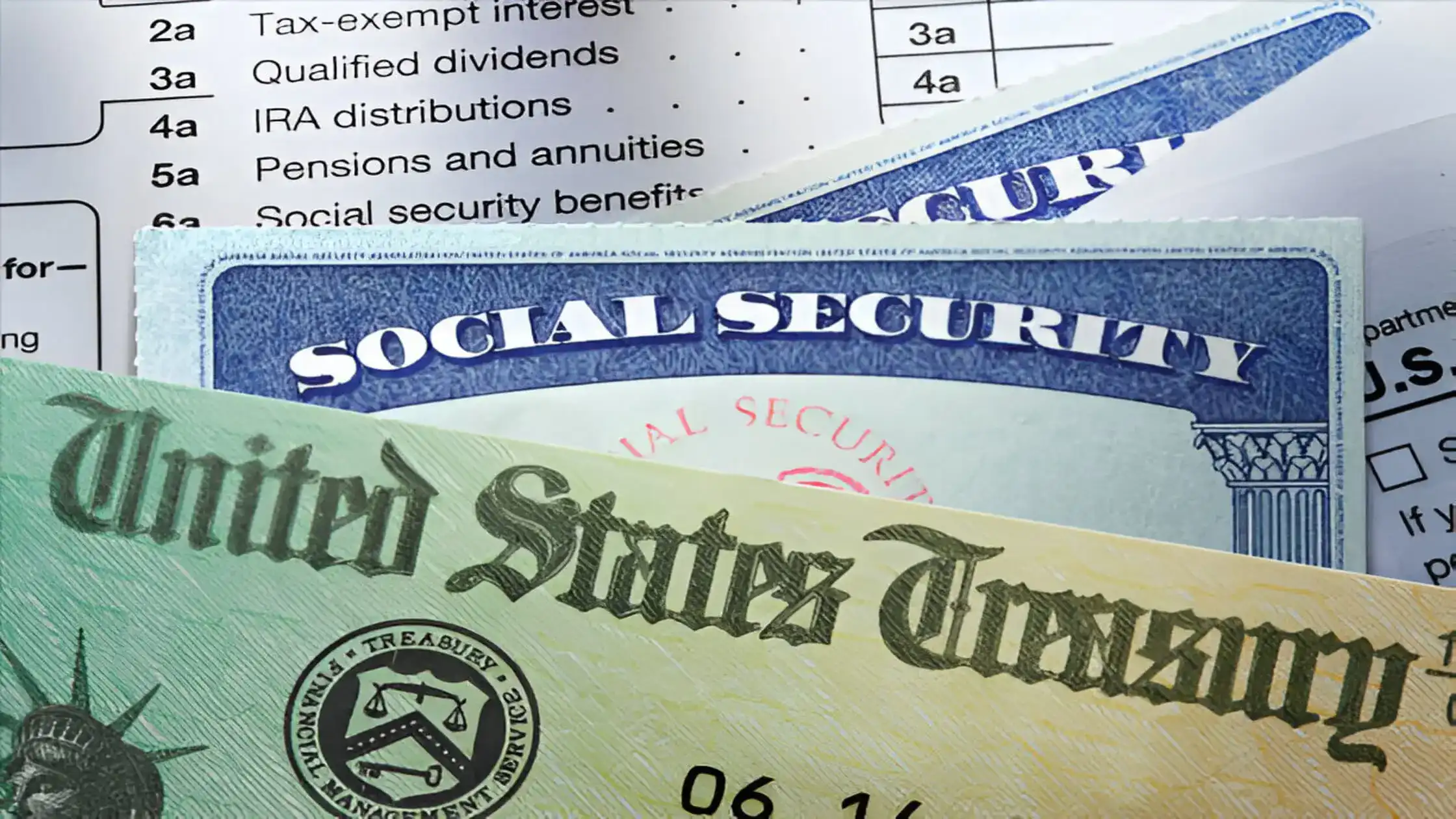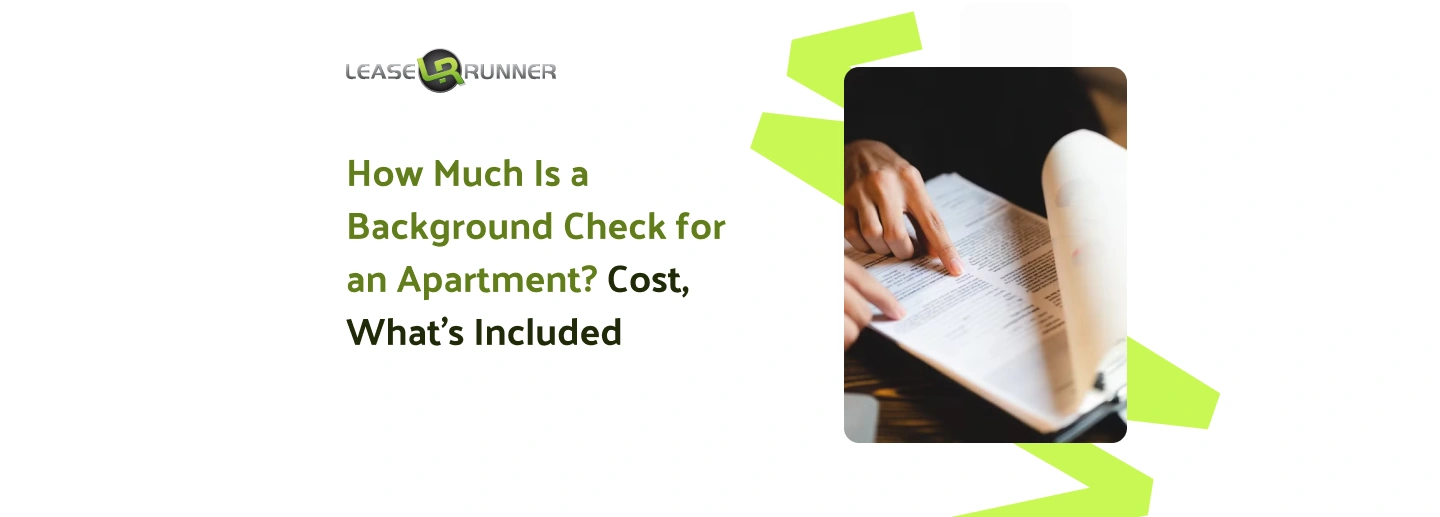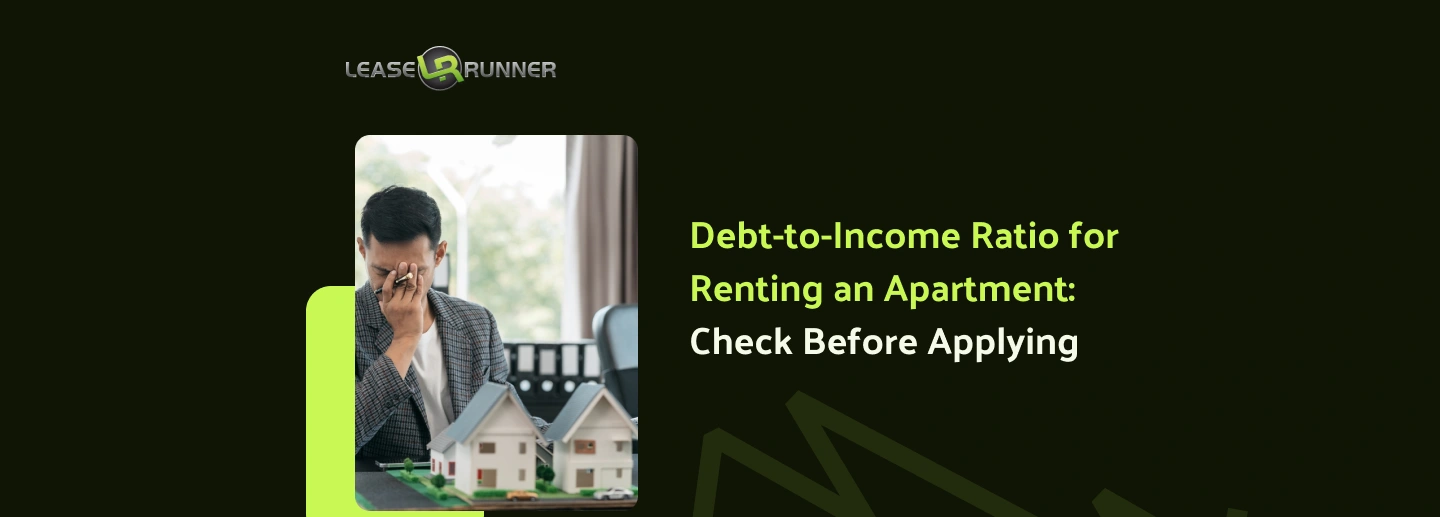Running a background check without a Social Security number can slow rental decisions and raise concerns about missing data. International students, new arrivals, or renters avoiding online SSN use often fall into this gap.
Landlords can still screen effectively with an ITIN, driver’s license, name, date of birth, or past addresses. LeaseRunner makes these alternative checks fast and secure. Check our suggestions right below!

Quick Facts on Background Checks Without SSN
Why Tenant Screening Without SSN is Becoming Essential for Landlords?

Landlords used to rely entirely on Social Security Numbers (SSN). Today, things look different. More and more people avoid giving personal numbers on forms. Some applicants simply refuse when they see a rental application asking for a Social Security number. Others are immigrants, students, or new professionals in the U.S. who have never even received one.
That matters because ignoring these applicants means fewer qualified renters and longer vacancies. Tenants also fear identity theft. Concerns are even higher with the rise of fake listings and fraud; guides like how to spot a rental scam show why many renters hesitate to share sensitive data upfront.
Imagine a young family worried about scams. They may ask: Do I have to give my landlord my Social Security number just to be considered? If the answer feels unsafe, they might quit the application.
So, why do landlords need a social security number historically? Mostly for credit checks and identity matching. But now landlords must adapt. Landlords who accept applicants without SSNs can tap into a broader, safer pool of renters. Tools like LeaseRunner make this switch easier.
Do Background Checks Require a Social Security Number?
The answer: not always. SSNs connect quickly to credit reports, but much of the important background can still be verified without them.
That said, landlords must understand the trade-off. Running a background check without an SSN often costs more. Why? Because tenant screening services must pull from multiple databases. They need to confirm names, cross-check dates of birth, and track address histories. All this takes time and processing.
For example, when you run a standard report with LeaseRunner’s basic screening service, results arrive fast, and you get rapid access to credit, eviction, and criminal records linked directly by SSN and other identifiers.
Without an SSN, LeaseRunner performs layered identity verification checks, comparing multiple data points to ensure accuracy. This process can take longer and may carry higher fees.
Applicants sometimes ask: “Why is the social security number on rental application forms at all?” It’s about convenience and speed. With SSNs, everything matches fast. Without them, the screening isn’t impossible; it’s just extra work.
What Landlords Can Still Verify in Tenant Background Checks Without SSN?

Running a tenant background check without a Social Security number does not mean landlords are left blind. While a full credit file may be harder to access, there are still many areas where strong insights come through.
With smart use of records and direct communication, landlords can still reduce risks and follow best practices in tenant screening, even when an SSN is missing.
Criminal Background Checks
Criminal background checks do not require an SSN. County, state, and federal criminal records can often be searched using the applicant’s full name, date of birth, and address history.
For example, a landlord screening a new applicant in Colorado can search county court files using the renter’s full legal name and date of birth. If the applicant faced past charges in that county, those results will appear.
Important to note is that errors like false matches are more likely when SSNs are absent, especially for people with common names. However, adding extra identifiers such as a middle name or a recent address can reduce this risk significantly.
Eviction Records
Eviction records matter most because they stem from local court filings, not criminal databases. These public court documents typically link eviction cases to a tenant’s name and date of birth rather than Social Security numbers.
Even if an applicant does not provide an SSN, many courts allow users to search eviction cases by name and DOB. For instance, landlords can cross-check multiple prior addresses against local housing court records, uncovering any eviction history tied to those locations.
For more details and information, explore effective ways to check eviction records and tips on managing rentals despite evictions.
Financial History
While an SSN is needed to pull traditional FICO or Vantage credit scores, landlords can still verify financial stability through other means. Documents like pay stubs, recent bank statements, or employer letters serve as direct proof of income and financial reliability without requiring SSNs.
For example, a tenant with consistent employment can provide monthly pay slips paired with a verification letter from their employer, giving landlords confidence in rental payments even without a credit report. For more details, read about providing a proof of income letter.
Direct Applicant Verification
Sometimes the best information comes from personal communication. Calling previous landlords can confirm whether a tenant consistently paid rent on time and respected lease terms.
When applicants hesitate about sharing their SSN on rental forms, this traditional verification step offers landlords valuable reassurance. To learn what essential questions to ask, see our guide on questions for previous landlords.
Name and Date of Birth
Simple details like name and birth date give access to court searches, voter rolls, and public identity records. Asking for them provides assurance without forcing an SSN.
Alternative Documentation for Verification
Alternative IDs such as passports, driver’s licenses, or an ITIN (Individual Taxpayer Identification Number) help fill identity gaps for tenants who lack an SSN. For example, an international student might present a passport, visa documentation, and enrollment verification from their university.
LeaseRunner uses these alternative identifiers to generate accurate, reliable reports that ease concerns when SSNs are unavailable. Learn more about rental verification alternatives.
How Landlords Can Run a Background Check Without an SSN?

Many landlords wonder how to perform a reliable background check without an SSN and still feel confident in their rental decision. The process takes extra steps, but with structure and preparation, it works smoothly. Below are the key stages, plus clear examples of what to ask for and why.
1. Obtain Written Consent
Landlords must start with permission. The Fair Credit Reporting Act (FCRA) says landlords need formal written consent for all checks they do, even if they only check address history or call past landlords.
The consent should include basic info about the applicant, what the landlord will check, and the tenant’s rights. This written consent is the legal basis that protects landlords from problems.
For example, if a landlord in Denver collects pay stubs and checks county eviction courts, having written authorization protects them from legal issues.
2. Collect Alternative Identifying Information
Instead of an SSN on a rental application, request full legal name, date of birth, and address history. These details link applicants to public records. For instance, a landlord can check eviction databases by running searches tied to recent addresses.
3. Use Reputable Tenant Screening Services
Working with a trusted screening service reduces guesswork. Online services like LeaseRunner’s tenant screening solution package combine criminal, eviction, and identity data into one clear report.
These providers help standardize the process by integrating multiple data sources, ensuring legal compliance to minimize litigation risk, and maintaining accuracy, especially important when screening applicants who don’t have an SSN.
A reliable service can also simplify the process of screening Section 8 tenants by providing the necessary reports to meet program requirements. Instead of landlords manually verifying court or agency records, these services can deliver results quickly and reliably.
For landlords new to tenant screening or those wanting a practical overview, our LeaseRunner tenant screening checklist outlines key documents to request, while the tenant screening report guide explains how to interpret each part confidently.
4. Request Alternative Documents
A solid tenant background check without a Social Security number often relies on direct financial proof. Ask for at least two pay stubs, a letter from the employer, and a copy of a driver’s license or passport.
For example, a renter who refuses to enter a social security number on rental application forms might instead show a contract letter from a tech firm and past bank deposits, both proving income stability. For tenant income verification guidance, see how to verify tenant income and learn about spotting fake pay stubs.
5. Focus on What Can Be Checked Without SSN
A landlord asking for a Social Security number usually wants credit data. Yet, plenty remains verifiable without it: eviction records from courts, criminal checks at a county level, and verification of past landlords. Calling references often reveals just as much as a credit file.
6. Consult Property Management Professionals
If managing these steps feels overwhelming, seek help from property managers or tenant screening experts. Professionals with FCRA-certified screeners specialize in running background checks without SSNs while complying with housing laws.
Tenant screening platforms like LeaseRunner or TransUnion SmartMove offer background screening solutions for non-SSN tenants, letting applicants submit information securely through portals and allowing landlords to run alternative background checks for non-US citizens or international tenants. Entrusting these experts saves landlords time and reduces legal risk.
Challenges and Limitations of Running a Background Check Without an SSN

Screening tenants without an SSN can work, but the process feels heavier on both sides. Landlords lose a quick marker of identity, and tenants lose an easy way to prove trust. Let’s break down the main hurdles for each group.
For Landlords
Running a legal background check without a Social Security Number makes confirming identity harder. Without that number, matches rely on name, birth date, and address, so errors can slip in.
For example, a court record linked to someone called “Maria Lopez” may appear even if it’s for a completely different person. This means screening applicants who don't have an SSN risks both false alarms and missed data. Additional challenges include:
- Time stretches because without an SSN, connecting databases takes longer. Landlords manually piece together results by searching local court records, calling employers, or checking prior landlords.
- Fees often rise since background services charge more for background screening without an SSN due to the extra work.
- Financial checks weaken, as credit reports usually need an SSN. Landlords rely on secondary proofs such as pay stubs, bank letters, or employer notes.
- Sorting data is complex when reports pull from scattered sources; cross-matching records may require repeating searches.
Tools like our tenant background screening service help reduce this chaos by consolidating data into one secure place. A good way to verify a tenant’s income is to request an employment verification letter, which is one of the methods we cover in our guide on how landlords verify employment.
Tip for landlords: Be upfront early. When a landlord asks for a Social Security number and meets hesitation, explain the alternatives you accept. List which documents replace the SSN, such as a passport plus wage slips. This keeps the process fair and saves time.
For Tenants
Applicants face added hurdles when missing an SSN because they often lack a U.S. credit file. Landlords may struggle to determine financial history quickly. This often means:
- Stricter lease terms, such as higher deposits or requiring a guarantor.
- Foreign students, for instance, may have steady income but must provide passports, pay stubs, and bank statements instead of a quick SSN check.
- Privacy concerns rise due to the sensitive nature of these documents and worries about data leaks or fraud.
- Errors happen when common names cause mistaken eviction records or other false associations without SSNs to confirm identity. Clearing such mistakes can take weeks, involving calls and evidence.
- In competitive rental markets, applicants willing to provide an SSN may gain preference, while others relying on international tenant background check without SSN or non-SSN tenant background check methods must prove trust more thoroughly.
Advice for tenants: Build a package before applying. Include photo ID, income proof, and landlord contacts. Many owners also appreciate it when you provide references up front. You can anticipate these points using our questions to ask tenants guide.
It’s also wise to understand what an application fee for a rental covers so you can avoid unnecessary costs. Collecting solid credit references is another great way to build your application, as we detail in our article on what are credit references on a rental application. Confidence and completeness often make up for missing numbers.
Using ITIN or Other Alternatives Instead of SSN

Relying on alternatives to a Social Security number offers both landlords and renters more flexibility while keeping personal data safer. Today, many applicants hesitate to provide their SSN on rental application forms or ask whether a background check always requires one.
While an ITIN (Individual Taxpayer Identification Number) can help, it does not completely replace an SSN but serves as a useful alternative for many tenants.
Individual Tax Identification Number (ITIN)
An Individual Tax Identification Number (ITIN) often steps in when an SSN is missing. Many foreign students, visiting researchers, or professionals on work visas do not qualify for U.S. SSNs right away. Yet, they may still want to rent apartments and must face a tenant background check without a Social Security number.
In such cases, the ITIN allows a background check without an SSN while also supporting tax obligations. For example, an international engineer relocating to Texas may offer their ITIN along with pay stubs as proof of income and identity, allowing landlords to process the lease smoothly.
For more information on income verification, check some possible proof of income letter right here. Services link ITIN details with address and court records, helping landlords avoid gaps when SSNs are left blank on applications.
Driver’s License, Passport, or Other IDs
Other common substitutes include driver’s licenses and passports. For landlords concerned when filling out a rental application, asking for a social security number, seeing a U.S. driver’s license number, or a foreign passport with a valid visa reassures them that government records verify the applicant. To be more detailed, other common substitutes include:
- U.S. or foreign driver’s license numbers
- Passports and visas
- State-issued ID cards
- Military IDs
- Consular IDs
When landlords see a U.S. driver’s license or a valid foreign passport, they gain confidence that government agencies have verified the applicant. Combining these IDs with employment letters or proof of income provides landlords with valuable insights, even without an SSN.
If you are a tenant acknowledging that a landlord is uneasy about a missing SSN, preparing these alternative IDs beforehand will ease the process. For that, a tenant should collect a package with photo ID and income documents ahead of time, which reduces delays for renters.
On the other hand, these alternatives replace uncertainty with real, valuable data for landlords. However, this method still has to be applied in some inevitable situations. Therefore, understanding the process deeper will help both sides save time for the lengthy process.
Conclusion
Running a background check without a Social Security number requires extra steps, but it’s far from impossible. In fact, it’s the next stage of fair housing in a digital world. With fraud rising, more applicants hesitate to expose SSNs, especially online.
Landlords willing to adapt gain access to strong, sometimes overlooked, tenant groups, foreign nationals, privacy-conscious renters, or students. At LeaseRunner, we help landlords handle this transition smoothly.
From digital reports to ITIN-based checks, we support both applicant trust and landlord risk management. You can screen smart, stay compliant, reduce fraud risks, and protect applicants—all without leaning completely on an SSN. That’s the modern future of rental
FAQs
Do apartment applications ask for SSN?
Yes, most rental forms include a space for an SSN. Landlords often expect it by habit. Still, tenants can provide alternatives when they do not want to add a Social Security number on rental application forms.
For example, an international student can give a passport and a university letter instead. A tenant background check without a Social Security number can still move forward when those details are provided.
Can a landlord ask for a Social Security number?
Yes. A landlord asking for a Social Security number is legal. However, applicants also have the right to suggest alternatives.
Is it safe to put your Social Security number on a rental application online?
Safety depends on the portal. On unsecured forms, data may leak. With LeaseRunner, encryption protects every SSN on rental application details, so both sides can trust the system.
Why do landlords need a Social Security number?
The main reason is speed. Credit history checks are faster with SSNs. Yet, tools today also allow a background check without an SSN, so cautious tenants still have paths forward.
Do I have to give my landlord my SSN?
The legal answer is no. Tenants are free to decline. But in practice, sharing it often speeds up the approval because many credit bureaus require that data. A renter who prefers not to disclose it should prepare other proofs, like pay stubs or a driver’s license.
What if my applicant only has an ITIN?
An ITIN can cover many of the same functions as an SSN. Imagine a contractor from abroad who just received an ITIN card. That number helps confirm tax history and identity, giving landlords enough to run a background check without an SSN.







